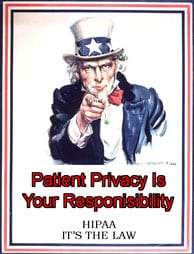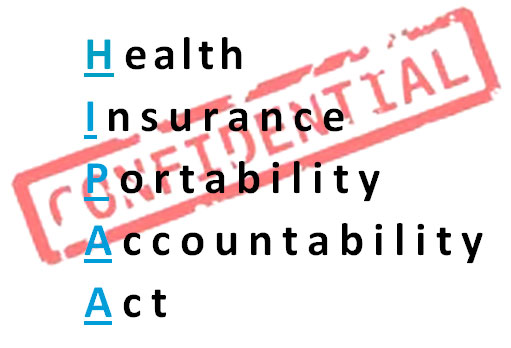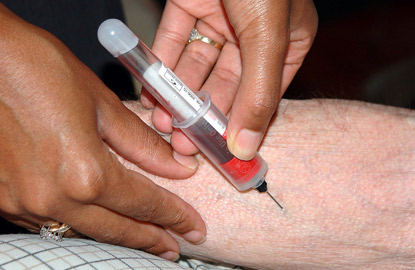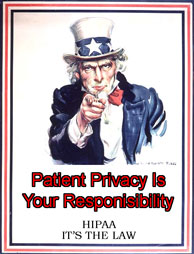The presence of a virus capable of causing an epidemic poses several important questions. It also illuminates several issues that are important for members of a civilized nation to discuss and know where society stands. This Straight, No Chaser looks at the rights and privacy concerns of the various interests involved in the various cases.
We have patients, staff and the concerns of the public to consider. Let’s review each.
The patient: Patient rights are protected by a law known as HIPAA (Health Insurance Portability and Accountability Act). It’s pretty amazing (and likely against the law) how much information related to specific patients has been discovered and disclosed by the media. Patients have rights to keep their health information secure. Imagine how you’d feel if you went to the hospital with pneumonia and were subject to all manner of news reports and speculation about the nature and details of your disease and care. That’s what HIPAA prevents from happening.
The staff: Those who choose to care for others make a conscious decision to potentially place themselves in harm’s way. In addition to health care workers, police officers, firefighters, pilots and several other professionals accept this part of the job. Of course, it should make sense that in accepting this risk, hospital workers would be given complete information about the nature of the danger and steps needed to protect themselves as best as possible when confronted with an infected, contagious patient with a potentially deadly disease.
The public: At what point in time does a disease in the community present a need for the public to know so much so that it trumps an individual patient’s right to privacy? To begin with, there are numerous disease more pronounced than Ebola virus in its ability to cause harm that the medical system confronts and addresses every day. You’d be shocked at what lives inside of some hospitals. Regardless of the novelty of a disease, this ubiquitous nature of disease means there are always going to be some individuals in a community who have likely been exposed to infectious diseases.
This is why their are ongoing public education and information campaigns. The public needs to have quarantine considerations better explained. Diagnostic considerations should be shared when important. As an example: We’re coming upon flu season. Influenza and the diseases caused by the Ebola virus have some similar symptoms. It is prudent that the public not be left to fear that typical flu-like symptoms are an epidemic of Ebola when it’s not, and similarly it’s important that the public know if indeed symptoms do represent an outbreak needing to be contained.
These are the considerations. Good luck if you’re looking for answers. These are the types of considerations that keep the medical and public health communities up at night. However, I will tell you this much about how these situations are handled:
1. Patient privacy concerns are serious business in the US and in most cases trump other considerations. As noted, there’s a law around these things, and violations of the law can bring consequences.
2. Hospitals are generally excellent at managing diseases. It’s in the public’s best interest that you aren’t aware of everything routinely occurring within a hospital, particularly with the propensity to panic and have mass hysteria.
3. It is an unfortunate happenstance that those who accept the risks involved with taking care of patients actually do accept risks involved with taking care of patients. Healthcare workers get stuck by needles (resulting in Hepatitis or even HIV), catch contagious diseases (such as the flu, meningitis or pneumonia) and deal with unknown considerations all the time. It’s not like patients come to the emergency rooms with stickers on their foreheads identifying the diseases they’re carrying at the very beginning of the interaction.
This much you can trust: These concerns are constantly being addressed, often on a case-by-case basis. Fortunately, checks and balances exist. Hospitals have the obligation and the foresight to balance these considerations to the best interest of those involved. The media will continue to push concerns into the public’s consciousness. You have a responsibility to be informed and to take reasonable preventive measures, because in the end you don’t want to be on the wrong side of the equation and get inappropriately exposed due to enforcement of someone else’s privacy considerations.
Thanks for liking and following Straight, No Chaser! This public service provides a sample of 844-SMA-TALK and http://www.SterlingMedicalAdvice.com (SMA). Enjoy some of our favorite posts and frequently asked questions as well as a daily note explaining the benefits of SMA membership. Please share our page with your Friends on WordPress, on Facebook at SterlingMedicalAdvice.com and on Twitter at @asksterlingmd.
Copyright © 2014 · Sterling Initiatives, LLC · Powered by WordPress





